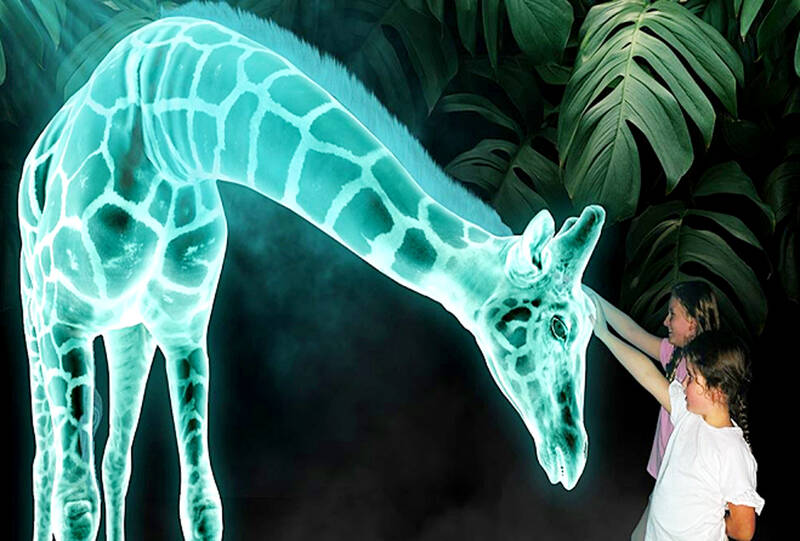People have a fascination with wild animals, and zoos may be the only chance for some to observe animals closely. Whether it’s rarely-seen creatures like kangaroos and koalas, curious animals like sloths and pangolins, or even endangered species like rhinos and orangutans, humans enjoy watching the behavior of creatures on display. The keeping of wild animals in cages is nothing new, though. There is evidence from ancient Egyptian and Mesopotamian wall carvings showing that the first efforts to keep animals in enclosed pens began thousands of years ago. Later, various animals were kept in private collections called menageries by well-off people and leaders to show off their wealth and power.
It wasn’t until the Age of Enlightenment that this practice evolved into what resembles the modern zoo. This was a time when reason, logic, and science became highly valued and respected in Europe. During this time, people started to study animals for scientific reasons. Early zoos kept living animals in small limited areas for observation. Compared with zoos of today, they were seriously lacking in what animals require to feel comfortable. Zoos today aim to create environments similar to natural habitats for animals.
There has been much debate about zoos as part of the discussion on animal rights. On one hand, zoos help protect species and promote breeding with special programs. They also educate visitors about wild animals and allow people to see the creatures up close. On the other hand, there are valid arguments against the existence of zoos. Many believe that being kept in enclosures causes the beasts to suffer from stress and boredom. In some places, animals are kept in crowded conditions and mistreated by their handlers. This has led to calls for the banning of zoos and the release of all animals back into the wild.

Photo: AdobeStock 照片:AdobeStock
人們對野生動物著迷,而動物園可能是讓有些人能靠近觀察動物的唯一機會。無論是像袋鼠和無尾熊等罕見生物、樹懶和穿山甲等稀奇動物、或甚至是犀牛和紅毛猩猩等瀕危物種,人類很喜歡觀賞展示動物的行為。不過把野生動物圈養在籠子裡並不是新鮮事。古埃及和美索不達米亞的牆壁雕刻證實,首次將動物關在封閉圍欄的作為始於數千年前。之後,各種動物被富人和領導者納為私人藏品(稱作menagerie)以炫耀自己的財富和權力。
直到啟蒙時代,這項做法才逐漸演變成類似現代的動物園。這是理性、邏輯和科學在歐洲受到高度的重視與尊敬的時代。在這段時期,人們開始因為科學原因而研究動物。早期的動物園將活生生的動物圈養在狹小的有限區域內以供觀察。與現今的動物園比起來,那些地方嚴重缺乏讓動物感到舒適的要件。如今的動物園旨在為動物創造類似自然棲地的環境。
作為動物權益討論的一部分,一直都有許多針對動物園的爭論。一方面,動物園有助於保護物種並透過特殊計畫促進繁殖。動物園也會教育參觀者有關野生動物的一切,並讓人們能近距離看到這些生物。另一方面,也有反對動物園存在的合理論點。許多人認為,被關在封閉的區域內會讓這些野獸有壓力且感到無聊。在某些地方,動物被訓獸師關在擁擠的環境中並遭受虐待。這已經讓人們開始呼籲要禁止動物園並將所有動物釋放回野外。
Word in Use
1. fascination n. 著迷,入迷
Julia has a fascination with fantasy novels.
茱莉亞對奇幻小說著迷。
2. observe vt. 觀察
observation n. 觀察
Our teachers asked us to observe the growth of mung beans during the winter break.
我們老師要我們在寒假期間觀察綠豆的生長。
Close observation and detailed analyses help the scientists understand the new substance.
近距離觀察和詳盡的分析有助科學家了解該種新物質。
3. endangered a. 瀕臨絕種的
Some kinds of starfish are now endangered due to climate change.
如今,有些海星品種因為氣候變遷而瀕臨絕種。
4. species n.(動、植物的)物種
It is illegal to capture protected species.
捕捉保育類動物是非法的。
5. enclosed a. 封閉的,密閉的
enclosure n. 圍起來的區域
Staying in a small enclosed space can make some people panic.
待在狹小的密閉空間裡可能會讓某些人恐慌。
The zoo’s new tiger enclosure is spacious.
該動物園全新的老虎園區很寬敞。
Practical Phrases
1. on display 公開展出∕展覽
This gallery has some art pieces on display.
這座美術館展出一些藝術作品。
2. show off... / show... off 炫耀∕賣弄……
Patricia likes to show off her engagement ring.
派翠西亞喜歡炫耀自己的訂婚戒指。
3. compared with / to... 和……比起來
Compared to physical stores, online shops often offer more discounts.
和實體店比起來,網路商店通常會提供較多折扣。
4. be lacking in... 缺乏……
Our project is lacking in funding.
我們的計畫缺乏資金。
5. on (the) one hand... on the other (hand)... 一方面……另一方面……
On one hand, Jack’s idea is novel. On the other hand, it will require a lot of time.
一方面,傑克的點子很新穎。另一方面,那很耗時。
聽文章朗讀及講解: https://ivy.pse.is/455bfu
本文出自常春藤解析英語雜誌: www.ivy.com.tw

A: The 2025 World Masters Games will begin on May 17 and run until May 30. B: World Masters Games? A: It’s a quadrennial multi-sport event for people over 30, which will be jointly held by Taipei and New Taipei City. B: Cool, maybe we can go cheer for all the athletes from home and abroad. A: There will be an athletes’ parade in downtown Taipei prior to the opening ceremony on Saturday. Let’s go then. A: 2025雙北世界壯年運動會5月17日開幕,持續至5月30日閉幕。 B: 世壯運? A: 這是四年一度、以30歲以上青壯年為主的運動會,本屆是由台北市和新北市共同舉辦。 B: 好酷喔,我們去幫來自國內外的選手們加油吧! A: 週六在台北市區會有選手遊行,之後是開幕典禮,我們去看吧。 (By Eddy Chang, Taipei Times/台北時報張迪)

A: Where will the 35 sports of the 2025 World Masters Games be held? B: Apart from Taipei and New Taipei City, some games will take place in Yilan County, Taoyuan County, and Hsinchu County and City. A: The news says about 25,000 people, including many celebrities and sports stars, have already registered for the games. B: Even Taipei Mayor Chiang Wan-an, who is 47, registered for softball and squash. New Taipei Mayor Hou You-yi, who is 68, also registered for table tennis. A: And it will be the largest sports event ever in Taiwan’s history. How exciting. A:

Computex, Asia’s biggest electronics conference, kicked off Monday in Taipei, and as in years past drew industry chieftains from Nvidia Corp.’s Jensen Huang and Qualcomm Inc.’s Cristiano Amon to Young Liu of Foxconn, which makes the bulk of the world’s iPhones and Nvidia servers. But while last year’s event was a celebration of the post-ChatGPT AI boom, executives this time are likely grappling with the uncertainty of the Trump administration’s effort to reshape the global trade order — disrupting a decades-old model for tech manufacturing. This year’s exhibition will of course feature the hardware required to bring artificial intelligence to life.

Dog owners often wish they could understand their pets’ thoughts. “Dog buttons” might turn their dream into a reality. These specially designed buttons, __1__ sound chips, enable dogs to communicate their needs by pressing buttons corresponding to pre-recorded words like “walk,” “play,” “outside,” and “food.” This bridges the communication __2__ between humans and their canine companions. The science behind dog buttons is based on the concept of associative learning. It’s a process __3__ learners can link actions with outcomes. For instance, if an owner consistently presses the “walk” button and then takes their dog for a walk, the dog